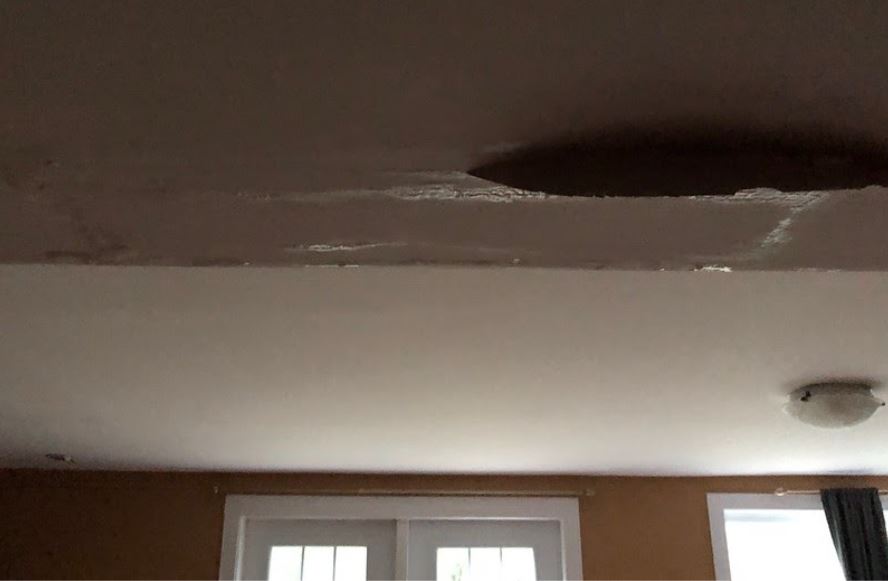Pinpoint Major Factors for Leak Issues in Your House
Pinpoint Major Factors for Leak Issues in Your House
Blog Article
Nearly everybody maintains his or her own theory on the subject of Top Causes of Home Water Leaks.

Leaks not only trigger waste of water yet can also trigger unneeded damage to your house as well as advertise unwanted organic growth. Unfortunately, water leaks might go unnoticed given that most of the pipework in our home is concealed. By looking and understanding for day-to-day scenarios that trigger leaks, you can protect your home from future leaks and unneeded damages. Today, we will certainly check out 6 leak creates that might be creating your pipes to leak.
Immediate temperature level modifications.
Extreme temperature modifications in our pipelines can trigger them to increase as well as contract all of a sudden. This growth and contraction may create cracks in the pipes, specifically if the temperature level are below freezing. It would be best if you kept an eye on exactly how your plumbing functions. The presence of the previously stated scenarios often indicates a high danger.
Corroded water systems
As time goes by, your plumbing system ages and also rust such as rust may begin eating away the pipelines. This could be the root cause of staining or warping on your pipes. This asks for an assessment with your plumber right away. Consider replacing the pipelines because they are at a greater risk of deterioration than the newer versions if our plumbing system is old.
Faulty Pipeline Joints
Pipeline joints can degrade over time, resulting in water leaks. If you have noisy pipes that make ticking or banging noises, especially when the warm water is turned on, your pipe joints are possibly under a great deal of pressure.
Elbowing in origins
Most water leaks start outside the house rather than inside it. You may notice wet patches or sinkholes in your yard, and that may suggest that tree origins are invading water lines creating water to leak out.
Poor Water Connectors
At times, a leakage can be triggered by loosened hoses as well as pipelines that supply your devices. Generally, shifting is what triggers the loosened water Links. You could locate when it comes to a washing equipment, a hose may spring a leak as a result of trembling during the spin cycle. In case of a water links leak, you may discover water running directly from the supply line or puddles around your appliances.
Blocked Drains
Obstructed drains pipes might be irritating and inconveniencing, but they can in some cases wind up causing an overflow bring about rupture pipes. Maintain eliminating any type of products that may drop your drains pipes that could clog them to avoid such troubles.
All the above are causes of leaks yet not all water leaks arise from plumbing leakages; some leaks could originate from roofing leakages. All leaks should be fixed quickly to prevent water damage.
Leakages not only cause waste of water however can additionally trigger unneeded damages to your residence and promote unwanted natural growth. By looking as well as understanding for day-to-day scenarios that trigger leakages, you can shield your residence from future leaks as well as unnecessary damages. Today, we will look at six leak creates that might be creating your pipelines to drip.
At times, a leakage can be triggered by loose hoses as well as pipelines that supply your appliances. In situation of a water connections leak, you may discover water running straight from the supply line or pools around your home appliances.
How To Check For Water Leak In Your Home
How To Check for Leaks
The average household's leaks can account for nearly 10,000 gallons of water wasted every year and ten percent of homes have leaks that waste 90 gallons or more per day. Common types of leaks found in the home are worn toilet flappers, dripping faucets, and other leaking valves. These types of leaks are often easy to fix, requiring only a few tools and hardware that can pay for themselves in water savings. Fixing easily corrected household water leaks can save homeowners about 10 percent on their water bills.
To check for leaks in your home, you first need to determine whether you're wasting water and then identify the source of the leak. Here are some tips for finding leaks:
Take a look at your water usage during a colder month, such as January or February. If a family of four exceeds 12,000 gallons per month, there are serious leaks.
Check your water meter before and after a two-hour period when no water is being used. If the meter changes at all, you probably have a leak.
Identify toilet leaks by placing a drop of food coloring in the toilet tank. If any color shows up in the bowl after 10 minutes, you have a leak. (Be sure to flush immediately after the experiment to avoid staining the tank.)
Examine faucet gaskets and pipe fittings for any water on the outside of the pipe to check for surface leaks.
Undetected water leaks can happen without the home or business owner even realizing. If you suspect a water leak, but not able to find the source. It is time to contact a professional water leak detection service, The Leak Doctor.
How To Find a Water Leak In Your Home
https://www.leakdoctor.com/blog/How-To-Check-For-Water-Leak-In-Your-Home_AE197.html

As an enthusiastic reader on Top Causes of Home Water Leaks, I assumed sharing that piece of content was a good idea. Do you know someone else who is very much interested in the topic? Be sure promote it. We recognize the value of reading our article about How to detect water leaks in your home.
Sink issue? Dial. Report this page